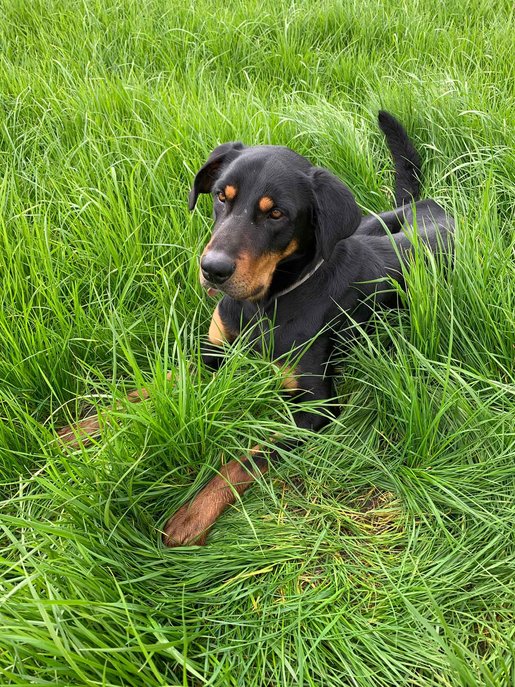And save more than you realise.
It’s a perfect spring day, and all is well.
But wait. What’s this? A big mob of animals you’ve never seen before has moved in, shoved yours tightly into a corner, and started eating all their grass. Not cool!
At least you can round the intruders up relatively easily, and get rid of them before they put a serious dent in your feed supply. Crisis averted…
But there’s another mob of intruders lurking quietly in the background. They’re everywhere, well-disguised as pasture, and about to take a big bite out of your income.
Luckily, this is an ideal time to evict them. You’ll relish the result, and so will your animals.
Sabotage!
Weeds are the ultimate freeloaders, taking everything and giving nothing.
Sneaky, greedy, ugly, and unscrupulous, they don’t care about your land, animals, cashflow or the pride you take in your farm.
They’re parasites, like worms or ticks. Only instead of sucking blood, they suck the productive life out of your pasture, all the while making you pay to maintain their standard of living.
And like parasites, if you don’t actively prevent and control them, you go backwards.
Put it this way. If 20% of your pasture is weeds, two hectares out of every 10 is full of plants stealing light, space, water and nutrients from your system, putting your animals off grazing; possibly poisoning them, and making your farm ugly.

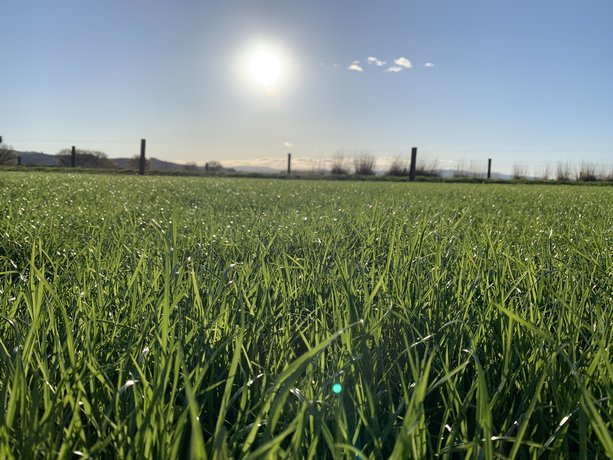
The goal should always be weed free pastures
The best offence is defence
Nothing keeps weeds at bay better than thick, healthy pasture. No bare ground = no room for new weeds to gain a foothold.
Nurture your ryegrass, clover and other high-value forage species with good sowing and year-round management, and you’ve won the battle before it even begins.
But what about paddocks where gaps have opened up, and let weeds in? After the weather we’ve had, there’s no shortage of these this spring. They might look nice and green, but don’t be fooled.
Get up close, and instead of delicious, profitable home grown feed, you’ll find the opposite. Let the mass eviction begin!
Know your enemy
Spring germinating, or autumn? Perennial, or annual? Broadleaf, or grass? Weeds come in all forms – the only thing they have in common is that they are plants growing where and when they’re not wanted.
To know your weeds well is to also know how to get rid of them. So, busy as you are this month, try to note what weeds are growing on the farm, and where.
That way you can plan effective, efficient eradication. Well-timed, carefully targeted herbicide control is highly cost effective, because it kills weeds while they’re still small and vulnerable, and before they can do a lot of damage.
But you can’t achieve this unless you know exactly what’s out there.
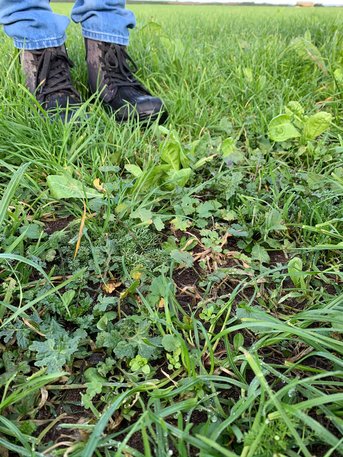
Weeds taking up unwanted residence in a paddock
Act fast
Really messy paddocks (>25% weeds) are best cropped this spring. Brassicas or chicory do a great job of evicting weeds; pasture pests too, for that matter.
If crop is not feasible, on behalf of your hardworking, loyal pasture species, we strongly advise a suitable herbicide programme for these heavily infested paddocks.
But don’t overlook the ones that are only just succumbing to weed pressure. The faster you stop weeds, the better your pasture growth, quality and utilisation will be. Also, a small weed population is cheaper and easier to kill than a big one.
Got paddocks with bare spots that haven’t yet been colonised by weeds? Think about undersowing or oversowing seed to fill those gaps.
Go wide
Speaking of sowing, did you know you can help future-proof your farm against weeds every time you drill new pasture? It’s all in how much ground you leave bare after planting.
If you drill in rows, as is very common, weeds look at all that beautiful empty space between the rows, and say ‘whoo-hoo, we’re in!’ Grass and clover seeds sigh, and say ‘how can we be expected to last several years under this pressure?’
Consider instead spreading new pasture seed evenly across the ground. Think roller-drill, broadcast, narrow-row drill, cross-drilling or diamond-drilling. Bonus: Your clover will be forever grateful.
Remember no bare ground = no room for weeds to gain a foothold.

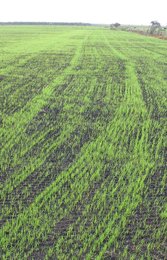
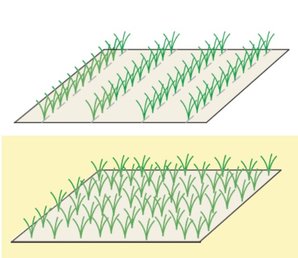
Drilling in rows vs. roller drilling – seed more spread can mean less bare ground
What next?
Strong pastures make strong farms. Weeds weaken your whole system.
But it can be hard to figure out where and how to start getting on top of them, especially at this time of year when so many other jobs need doing.
We can help. Just contact us for a free Pasture Health Check today, and you’ll be on your way to clean, prosperous and more sustainable grazing before you know it
